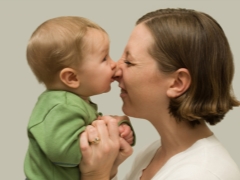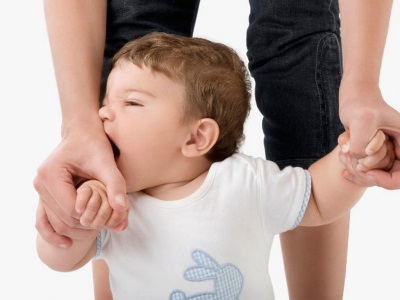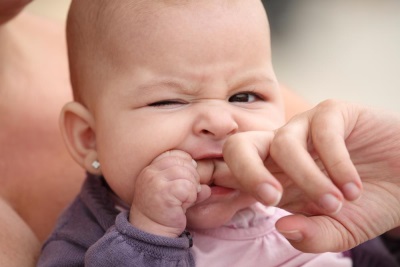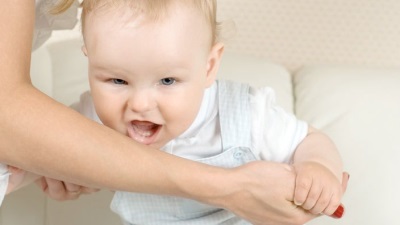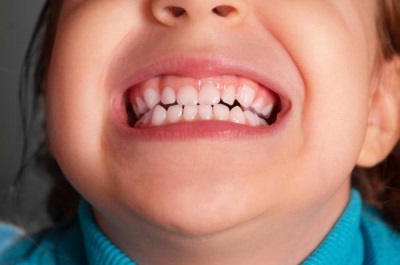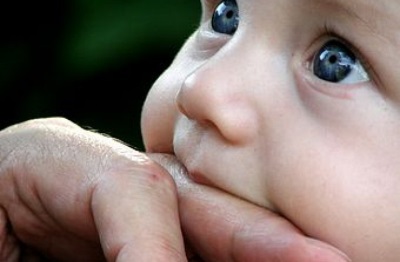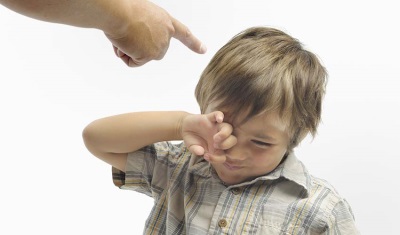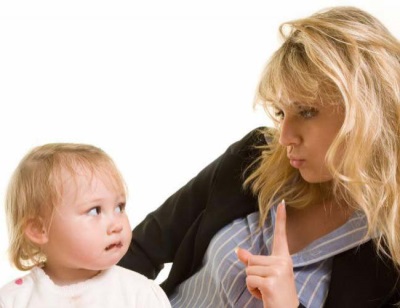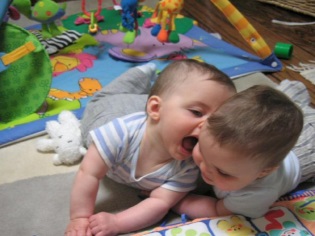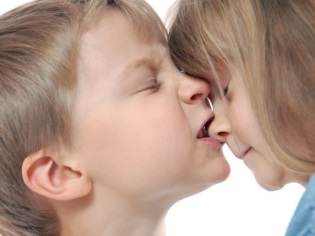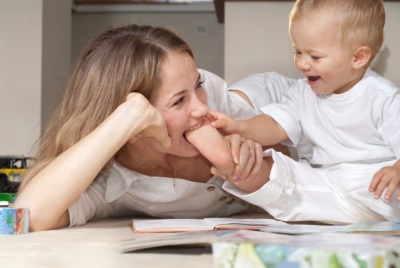What to do if a child bites: advice from a psychologist
Our kids taste the world. And this is true, because the mouth, the language, the receptors present on it are the first instruments of the baby, with the help of which he will know how life works. That is why the crumbs so much like to drag in their mouths everything that lies badly - from their toys to adult objects - points, keys and even money. This stage of development are all without exception. But many guys at a certain age have another unpleasant habit - biting or pinching others. The kid can bite other children on the playground or in kindergarten, it is very painful to pinch relatives or guests who came to the house. It is a shame to parents, persuasions on the child do not act. What to do in this situation? How to wean the child to float nails and teeth?
Why is he doing this?
First you need to understand why the child is doing just that.
- The physiological need to bite. It is observed in children aged 5 months. The desire to bite and gnaw is understandable - teeth are scratched, gums scratch and swell, the crumbs have no other way than to drag everything in their mouth and bite as much as possible. This is an instinctive desire. The child is not aware of what he is doing. Typically, the "peak" of dental suffering lasts up to 9-11 months.
- Emotional problems. From about 1 year old the child bites quite deliberately. The fact is that the vocabulary of the child is still extremely small, and I want to express feelings and emotions no less than an adult. Especially during periods of stress, vivid impressions. Therefore, the baby finds no other way out but to resort to the mouth-contact tool, which is customary from birth.
- Behavioral features. From one and a half to 3 years old baby can bite because of strong stressful situations. A typical example is a change of environment when a child begins to attend kindergarten. He tests the limits of reasonable and acceptable limits and seeks to keep the situation under control. He often bites in the kindergarten, because this is how he tries to establish leadership in the team of his peers.
- Mental illness. Talking about the possible presence of a psychiatric diagnosis is possible only if the child continues to bite at 4 years, 5 years, at 6-7 years of age. In this case, consultation of the neuropsychiatrist is necessary.
Who bites?
Popularly known children's doctor Komarovsky assures that all children try to bite. I disagree with that. Anyway, none of my four children tried to bite. Yes, and friends of such troubles did not happen. But I won't downplay the problem. Personally, I saw a kindergarten teacher “in the kindergarten” boy who bit the two girls and the nurse. The picture is not pleasant.
So who is inclined to bite?
- Children are imitators. The guys who like to copy the behavior of others. Biting, they can repeat the actions of someone from the group in kindergarten or even copy the manners of a puppy or kitten living in your house.
- Overly emotional children. Boys and girls who are overwhelmed with feelings, but because of the insufficient maturity of the emotional sphere, they simply cannot express them in any other way.
- Children who lack attention and love. In an attempt to draw attention to themselves, these guys often start to bite and pinch. Moreover, if there is no one suitable for these actions, then often such a baby bites his hand himself.
- Aggressive children. If by 3 years the habit of biting has not disappeared, despite all the efforts of parents and caregivers, this may indicate deviations in the development of the child’s personality. He has a high level of aggression. Mandatory consultation of the doctor is required, and then strict compliance with a set of corrective measures.
- Children with masticatory muscles. The irresistible craving to bite is observed in children with weakness of the masticatory muscles. Such babies can not part with the pacifier for a long time, and by the age of 2 they switch to other objects, but they are already floating their teeth.
- Children from "at-risk families". If in the family cry, scolding, quarrels is a normal and habitual phenomenon, then the baby tries subconsciously to “escape” from such a “heavenly place”. He experiences resentment, bewilderment, fear, and often hate. Biting can start as a defense, unable to recognize their feelings and find an adequate way out for them.
- Spoiled children. They are used to getting away with any trick, so why not bite?
- Children who are forbidden to everyone. If it is impossible at home, and this is not possible, and in general the word “cannot” sounds more often than others, children begin to protest. Biting and tweaking others, they are trying to break out of the too rigid framework established by him from the outside.
- Children who lack physical activity. If you move less than you want, then the need to bite becomes partially physiological.
- Kids who just like to bite.
How to fight?
The way to deal with harmful and traumatic habit depends on the reasons why the child began to bite.
If the teeth are crawling in an infant, buy him silicone rings. - teethers or special toys with "pimples" for gum massage. They are sold in pharmacies and children's stores. Gels like Metrogil help. But before using the medication is better to consult a doctor.
If, when breastfeeding, you notice that the baby has started to “bully” - deliberately biting, immediately take away the breast. So he developed a reflex "bitten - lost food." He will stop biting pretty quickly, because even the smallest child is not his own enemy, and he is well aware that he really needs a comfortable life.
For older guys it would be nice to increase physical activity. Engage in exercises, gymnastics, give the baby to the swimming section.
Emotional children need to systematically “put into their heads” every day the idea that feelings can and should be pronounced. Let him learn from a very early age to express his emotions with the words: “I am scared”, “I am offended”, “I like this toy because it is ...”, “I don’t want to go to visit because…”.
If a child has weak chewing muscles, and it bites, as they say, not from evil, eating solid food will help to cope with the situation - more often let your child chew on an apple, raw carrot, cabbage stalk. A great exercise for chewing muscles - inflating balloons and bubbles.
It is advisable to work with a psychologist with children from the so-called “conflict” families. And, of course, it is important to eliminate all the negative factors that cause the baby to experience stress and accumulate aggression.
When to seek help from specialists?
To this question, every parent should find the answer himself, but you should be alerted by the “biting” behavior of the child, if he is already more than three years old, if an unpleasant situation recently occurred in the family and in the kindergarten, which made a strong traumatic impression on the child’s mind. A doctor should also be consulted if, in addition to an increased “bitingness” and “pinching”, the child has other oddities in behavior. For example, the kid began to show aggression and cruelty towards his toys (throws, deliberately breaks), animals (mocks), the kid almost can not concentrate on anything, does not sleep well at night. All of these signs may indicate a mental disorder.
Psychologist tips
You can often hear such advice “And bite him back. Let him feel it! ” To do this is absolutely impossible. First, the baby can take it as a game, and start biting with a vengeance. And secondly, he also takes an example from adults, and if mom can bite, then why can't the crumbs?
The task of parents - as soon as possible to begin to stop the bites and tweaks from the child. For children more meaningful than infants, the method “Eye-to-eye contact” is suitable. Sit on the haunches so that your eyes are at the level of the baby's eyes. Make eye contact and firmly, but without anger, say to the child: “So. Do. It is impossible. Never. Not with anyone. ”If the baby tries to bite again, simply deprive him of eye contact. Do not look at him, no matter how he tried to draw attention to himself, show that it is unpleasant for you to communicate with a bite.
If a child has mastered the art of manipulation (usually it happens in 1.5–2 years) and blackmails the parents with the help of bites, stop it at the root. With a little terrorist you should not enter into a contractual relationship.
Impressive children will not be very nice if at the moment of the bite we cry out loud. Get them to feel sorry for you later because they hurt you. Feel free to describe your discomfort associated with a bite or a pinch.
If the crumb of the house is an angel in the flesh, and in kindergarten it stops in the bully and bites, talk to its tutors. Tell them that the baby does not need to be punished in public - put in a corner in front of the whole group, loudly scold. Such actions usually have the opposite result - the baby will begin to bite even more and more often, and this will be done in order to regain his authority in the team, and at the same time to protest.
When berating a baby at home, remember that you should only condemn the child’s deed, not his own. No matter how overwhelmed you are with negative emotions, do not let weighty and offensive words, do not say that the child is bad, harmful, evil. He is the best among you, but his habit of biting is really bad and harmful.
Try to get an apology from the biting baby. After each incident, he must ask for forgiveness from the person he has bitten.
The most common reason a child bites and stings is the accumulation of internal aggression. Teach the child to let her out. To do this, play role-playing games. Play at home a sketch on the theme “How will I act if a toy was taken from me in the garden” or “What will I do if other children do not take me to play with me?”. Let the child reproduce difficult situations for himself, and "play out" other possible solutions to the problem, which he has already tried to "taste."
What to do if a child offends other children or bites, see Larisa Sviridova’s video.
See the seminar of A. Rumyantseva, which explains the order of actions of parents, if they are bitten by a child.
